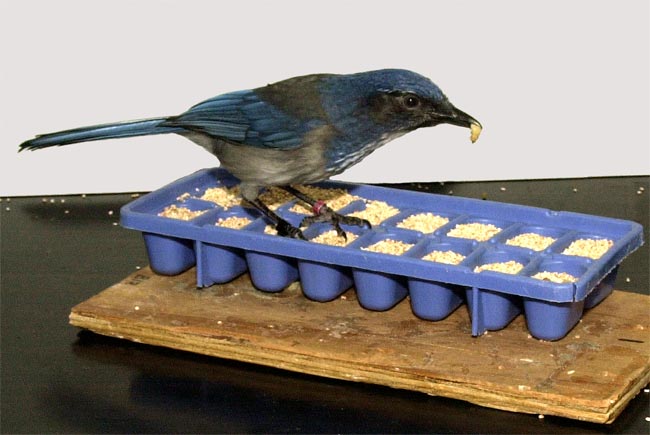Birds, Like Humans, Can Plan Ahead

Get the world’s most fascinating discoveries delivered straight to your inbox.
You are now subscribed
Your newsletter sign-up was successful
Want to add more newsletters?

Delivered Daily
Daily Newsletter
Sign up for the latest discoveries, groundbreaking research and fascinating breakthroughs that impact you and the wider world direct to your inbox.

Once a week
Life's Little Mysteries
Feed your curiosity with an exclusive mystery every week, solved with science and delivered direct to your inbox before it's seen anywhere else.

Once a week
How It Works
Sign up to our free science & technology newsletter for your weekly fix of fascinating articles, quick quizzes, amazing images, and more

Delivered daily
Space.com Newsletter
Breaking space news, the latest updates on rocket launches, skywatching events and more!

Once a month
Watch This Space
Sign up to our monthly entertainment newsletter to keep up with all our coverage of the latest sci-fi and space movies, tv shows, games and books.

Once a week
Night Sky This Week
Discover this week's must-see night sky events, moon phases, and stunning astrophotos. Sign up for our skywatching newsletter and explore the universe with us!
Join the club
Get full access to premium articles, exclusive features and a growing list of member rewards.
Western scrub jays, perching birds common in California cities, store snacks when they detect that food will be in short supply the next day or in the near future, new research suggests.
Scientists had previously placed the skill of "future-planning" into the exclusively human category. Recent studies have revealed some planning smarts in primates such as apes, but most other animals were perceived as only capable of putting their immediate needs on center stage.
Even animals that may appear to recognize future needs, the scientists suggest, are actually reacting to instinctual cues, such as the case with nest building, or immediate needs like hunger, which can trigger food hoarding.
Nicola Clayton of the University of Cambridge and her colleagues set out to test whether scrub-jay birds could plan for a future need as opposed to a current one. On alternate mornings for six days, eight scrub jays experienced one of two compartments. In one compartment, the birds were always given breakfast and in the other they were not.
In the evening, after this training period, the scientists allowed the birds to feast freely on pine nuts, which are suitable for hoarding. The birds planned for a breakfast-free morning by hiding much more food in the bare compartment compared with the "breakfast" one [image]. The prudent squirreling away reveals an understanding of future needs, the researchers say.
In a similar experiment, the scrub jays hung out in either a compartment with peanuts or one with dog kibble on alternate mornings. After several days, the birds were allowed to travel between compartments. This time the forward thinkers planned for a balanced diet and buried peanuts in the kibble enclosure and kibble in the peanut compartment [image].
"The western scrub jays demonstrate behavior that shows they are concerned both about guarding against food shortages and maximizing the variety of their diets in the future," Clayton said.
Get the world’s most fascinating discoveries delivered straight to your inbox.
"It suggests they have advanced and complex thought processes as they have a sophisticated concept of past, present and future, and factor this into their planning."
The research will be detailed in the Feb. 22 issue of the journal Nature.
- Video: Bird Radar
- Video: Extraordinary Birds
- Images: Rare and Exotic Birds
- Top 10 Animal Senses Humans Don't Have
More on Brainy Birds
Jeanna Bryner is managing editor of Scientific American. Previously she was editor in chief of Live Science and, prior to that, an editor at Scholastic's Science World magazine. Bryner has an English degree from Salisbury University, a master's degree in biogeochemistry and environmental sciences from the University of Maryland and a graduate science journalism degree from New York University. She has worked as a biologist in Florida, where she monitored wetlands and did field surveys for endangered species, including the gorgeous Florida Scrub Jay. She also received an ocean sciences journalism fellowship from the Woods Hole Oceanographic Institution. She is a firm believer that science is for everyone and that just about everything can be viewed through the lens of science.
 Live Science Plus
Live Science Plus










